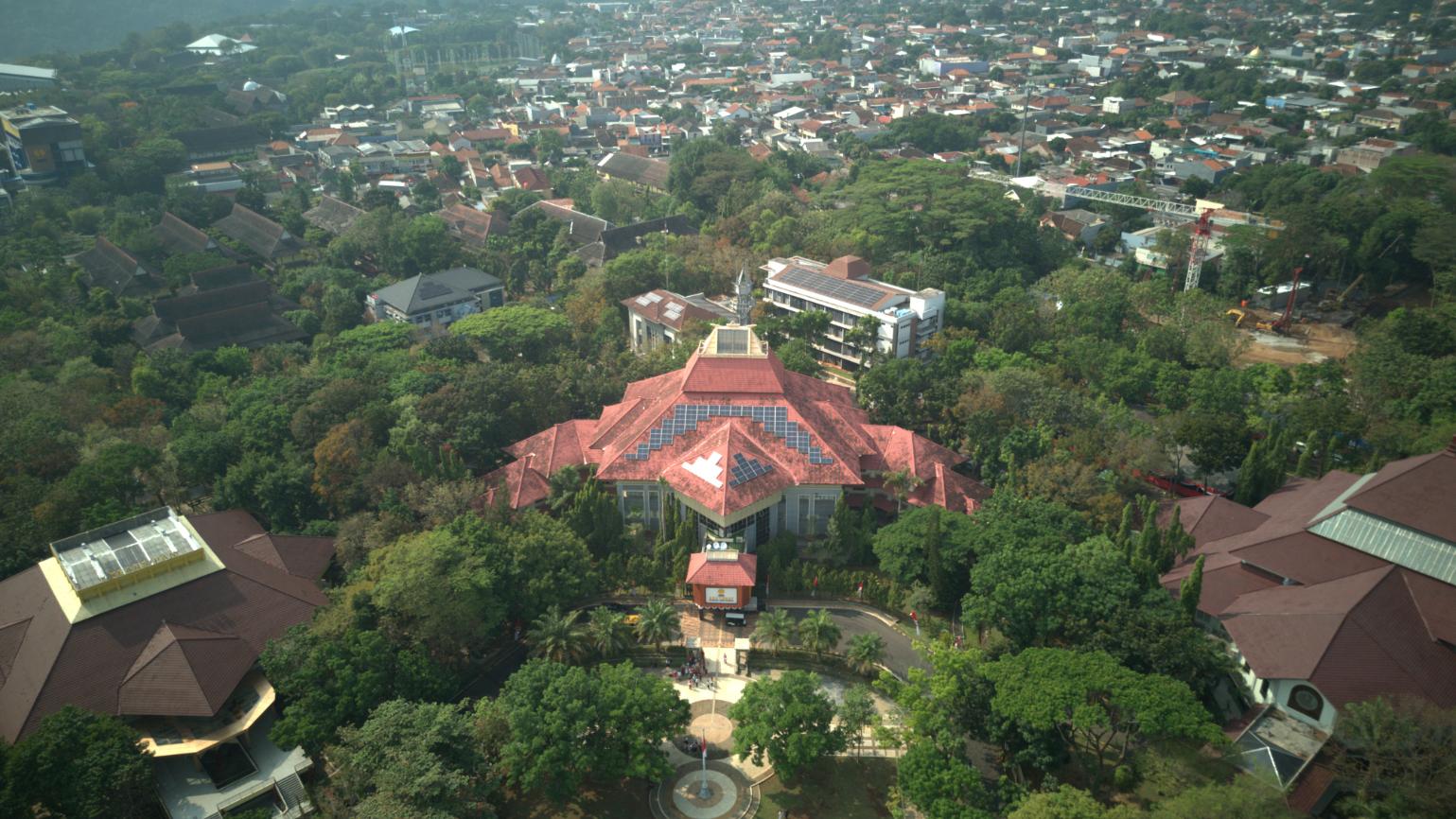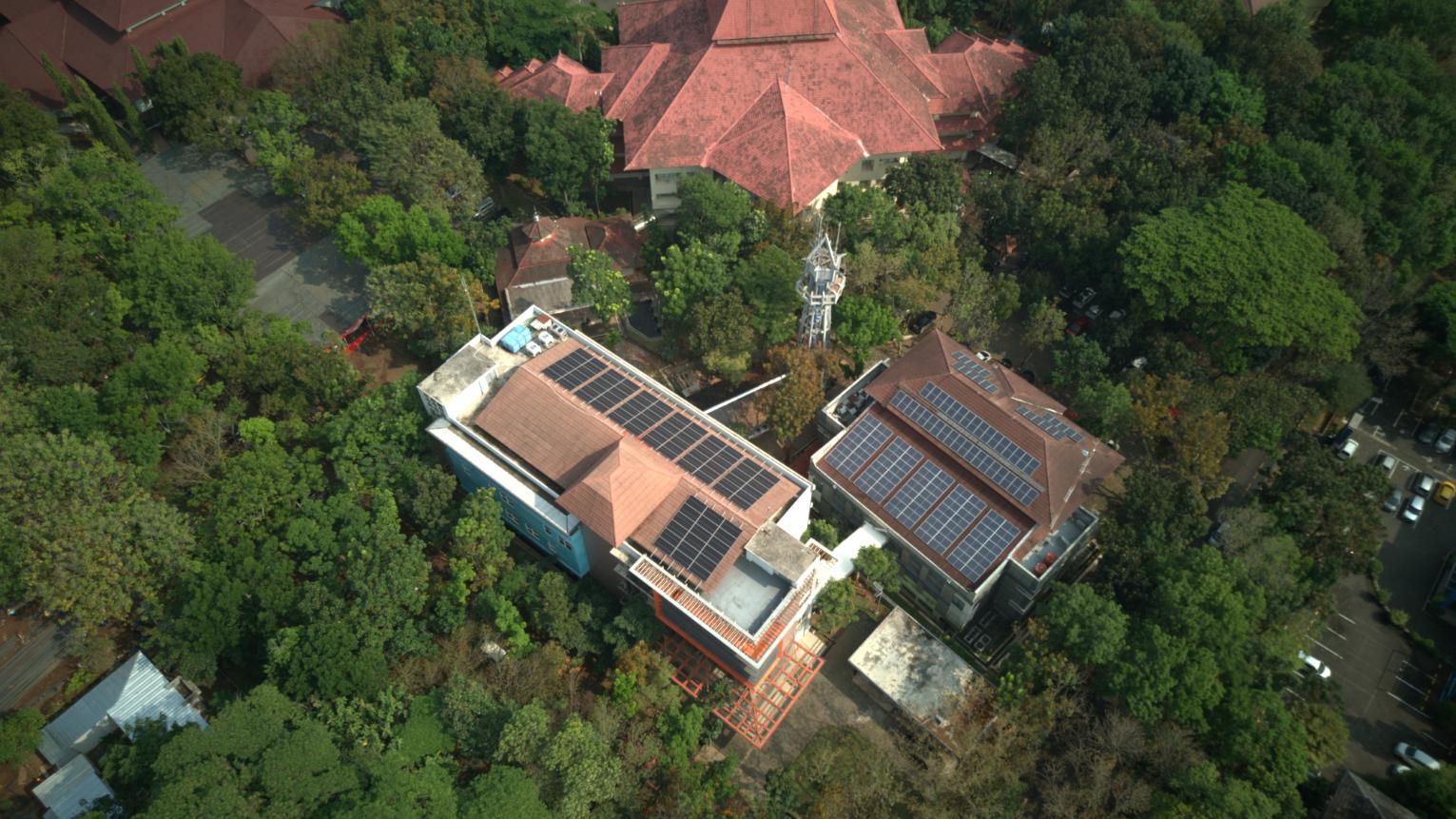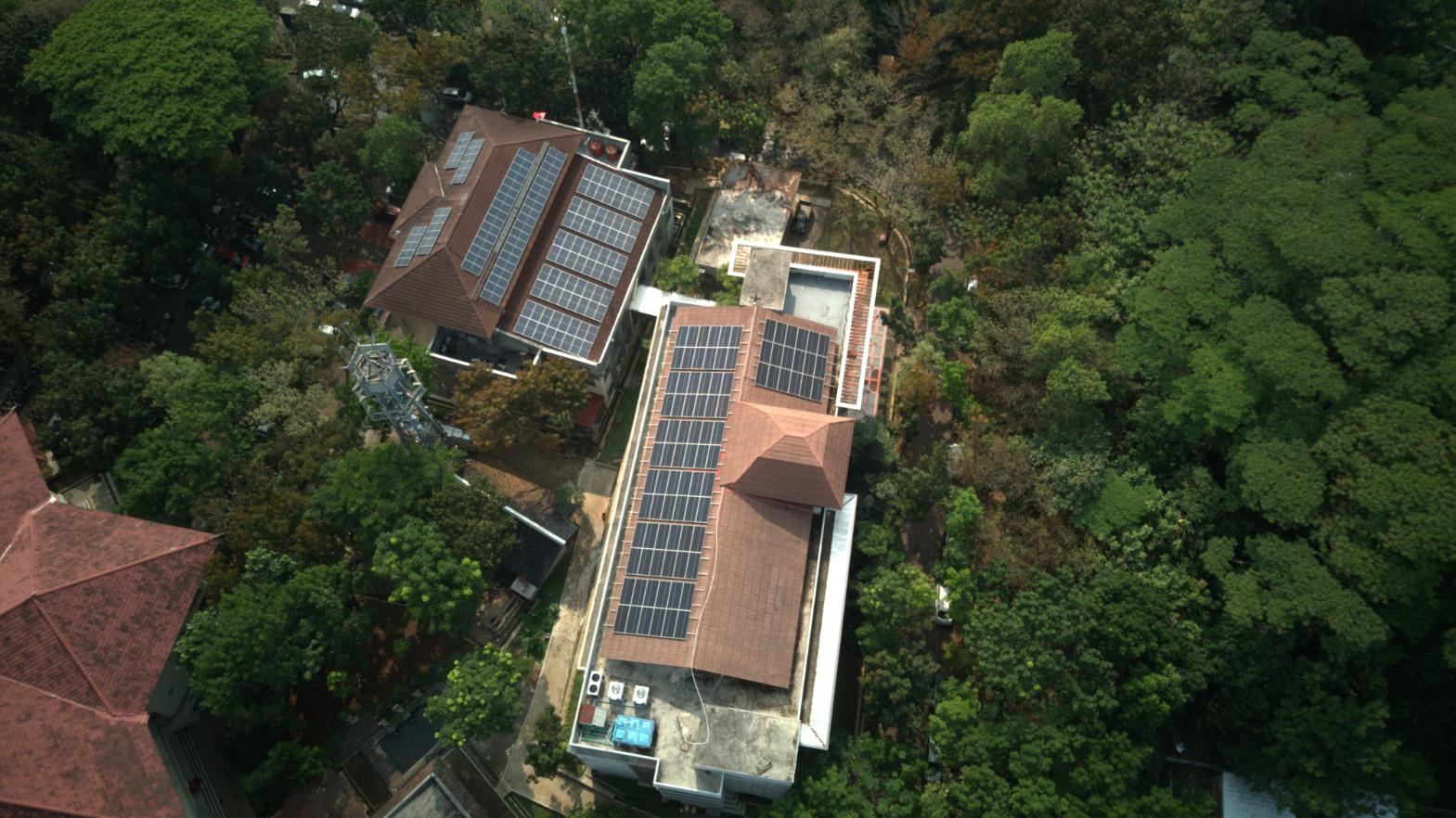Universitas Negeri Semarang (UNNES) is stepping up its commitment to clean energy adoption, installing solar panels across most of its campus and expanding into other renewable technologies as part of a broader conservation strategy. The university’s initiatives aim to reduce fossil fuel use while aligning with Indonesia’s transition toward sustainable energy.
Solar panels now cover nearly all major campus buildings — including the Rectorate Building, library, and waste management units — with a total capacity of 401,325 Wp. This system generates about 468,747 kWh annually, powering building operations, lighting for streets and parks, and charging stations for electric vehicles.
See also: Rivian Files Patent for Wheel Covers with Active Aerodynamic Features

The institution has also diversified its energy mix. A biogas facility in student dormitories processes domestic waste into 43 kWh of energy annually, while engineering teams have developed biomass briquettes from sengon wood waste and biodiesel from used cooking oil and coconut shells. A wind turbine prototype adds to total renewable production, which stands at 401,369.2 kWh per year — or 5.73% of the university’s annual consumption of 7,007,130 kWh.
Efficiency measures complement production, including air conditioning temperature limits of 25°C, restricted elevator use to peak times, and building designs that maximize natural light. Real-time monitoring through an online platform tracks electricity consumption, solar output, and electric vehicle performance.
See also: UNNES Launches Electric Motorcycle Prototype to Support Indonesia’s Renewable Energy Transition

In addition to infrastructure upgrades, UNNES students have contributed to the electrification push with Laplace, an in-house designed electric motorcycle. The prototype features a 1.2 kW motor, a 60-volt battery, and a 1,200 Wh capacity, reaching speeds of up to 60 km/h and carrying loads of 100 kg. On a single charge, it can travel 40–60 km, with charging costs estimated at about IDR 10,000 ($0.60) — significantly lower than the roughly IDR 48,000 ($2.90) needed for gasoline.
By combining renewable energy infrastructure, energy-saving policies, digital systems, and homegrown electric mobility projects, UNNES is positioning itself as a conservation-oriented university and a driver of Indonesia’s sustainable development goals.
